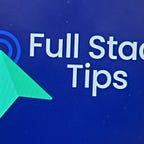Learn Java in 30 Days!
Java is a powerful programming language that has stood the test of time. Whether you’re a beginner looking to dive into programming or an experienced developer looking to expand your skillset, mastering Java can open up a world of opportunities. In this blog post, we’ll walk you through the process of learning Java, outline the essential topics to master, and provide the best resources to help you on your journey.
So let’s get started!
What is Java? At its core, Java is an object-oriented programming language known for its flexibility and platform independence. It was created with the purpose of writing code that can run on any operating system equipped with a Java Virtual Machine (JVM). This portability makes Java a popular choice for developing a wide variety of applications, from web and mobile to enterprise solutions.
How to Learn Java: Learning Java is not a difficult task. By following a structured approach and using the right resources, you can master the language effectively. Here is a step-by-step plan to start your Java learning journey:
- Setting Up Your Development Environment: To start coding in Java, you need to set up your development environment. Start by downloading and installing the Java Development Kit (JDK) from the official Oracle website. The JDK provides all the tools and libraries needed to write, compile, and run Java programs.
I would recommend you go through this blog post to understand better about JDK, JVM basics.
- Java Basics: Once your development environment is ready, it’s time to dive into the basics. Start by understanding variables, data types, control structures (such as loops and conditions), and methods. You can find great online courses and tutorials that cover these topics in depth.
- Object-Oriented Programming (OOP): Java is an object-oriented language, so mastering OOP concepts is crucial. Learn about classes, objects, inheritance, polymorphism, and encapsulation. Practice implementing these concepts in your code to solidify your understanding. Please refer to this blog for more details about OOPs concepts.
- Data Structures and Algorithms: To become a well-rounded Java developer, familiarize yourself with common data structures like arrays, linked lists, stacks, queues, trees, and graphs. Additionally, study popular algorithms for sorting, searching, and graph traversal. Resources like books and online platforms can help you gain proficiency in this area. For more detailed information, please refer to this blog here.
- Java APIs and Libraries: Java provides a rich ecosystem of APIs and libraries that can accelerate your development process. Explore the Java Collections Framework for efficient data manipulation, JDBC for database connectivity, Java Servlets for web development, and Java Persistence API (JPA) for working with databases. The official Java documentation and online tutorials are excellent resources for learning about these APIs and libraries.
- Dive into Spring Framework: Spring is a widely adopted Java framework used for building robust and scalable applications. It simplifies the development process by offering features like inversion of control (IoC), dependency injection, and aspect-oriented programming. Take the time to learn Spring’s core concepts and modules, such as Spring MVC for web development and Spring Data for database interactions. To know what are different modules in Spring Framework, please refer to this blog here.
Best Resources for Learning Java: To aid you in your Java learning journey, here are some highly recommended resources.
- Oracle Java Tutorials: Oracle Java Tutorials The official Java Tutorials provided by Oracle cover a wide range of topics, from basic syntax to advanced concepts. These tutorials are well-structured, easy to follow, and offer hands-on examples to reinforce your understanding.
- Books:
- “Head First Java” by Kathy Sierra and Bert Bates: Head First Java This beginner-friendly book uses a visually rich approach to teach Java concepts and programming techniques.
- “Effective Java” by Joshua Bloch: Effective Java An essential read for any Java developer, this book provides practical tips and best practices for writing clean, efficient, and robust Java code.
- “Java: The Complete Reference” by Herbert Schildt: Java: The Complete Reference A comprehensive reference guide that covers the entire Java language and its libraries.
3. Online Learning Platforms:
- Udemy: Udemy Java Courses Offers a wide range of Java courses for all skill levels. Look for highly rated courses by experienced instructors.
- Coursera: Coursera Java Courses Provides Java courses from reputable universities and institutions worldwide. These courses offer structured learning paths and assignments.
Conclusion: Mastering Java requires time, dedication, and practice. By following a well-rounded learning plan, exploring essential topics, and utilizing the best resources, you can become a proficient Java developer. Remember to continuously apply your knowledge through practical coding projects and stay up to date with the latest Java advancements. Happy learning and coding!
